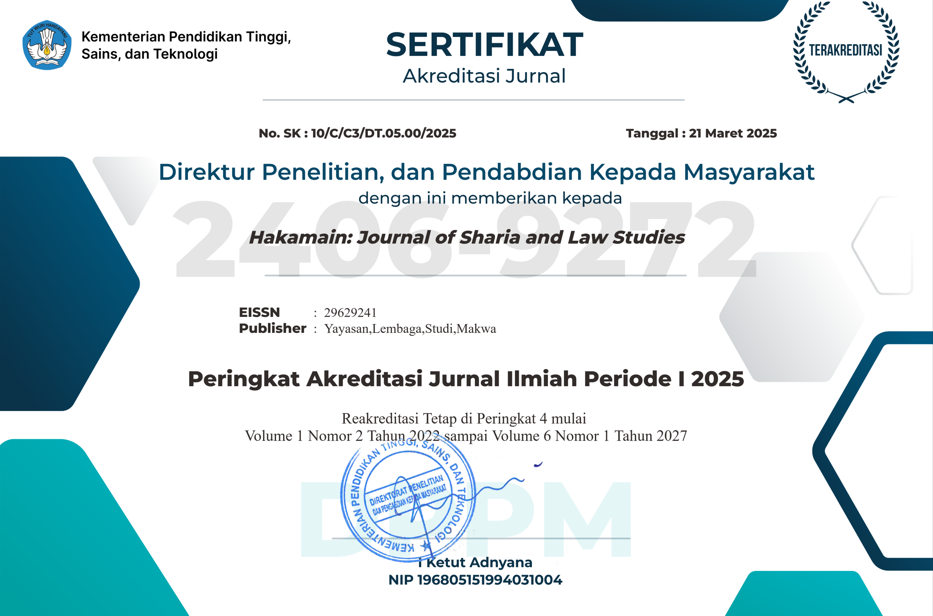Human Rights and Customary Law Analysis: Uncovering the Exploitation of Children and Women in Developing Countries
DOI:
https://doi.org/10.57255/hakamain.v2i2.325Keywords:
Human rights, Customary Law, Exploitation, Developing CountriesAbstract
The research aims to highlight how traditional practices and norms, often ingrained in customary laws, contribute to systematic abuses and human rights violations. Utilizing a multidisciplinary approach, this study combines legal analysis, sociocultural examination, and case studies from various developing countries to provide a comprehensive understanding of the issue. Through qualitative methods, including interviews with affected individuals, reviews of existing legal frameworks, and analysis of human rights reports, the research identifies key patterns and factors that perpetuate exploitation. The findings reveal that while customary laws play a significant role in community governance and cultural identity, they often conflict with international human rights standards, leading to the marginalization and abuse of vulnerable groups, particularly children and women. Specific customary practices such as child marriages, forced labor, and gender-based violence are scrutinized to demonstrate the pervasive nature of these violations. The study underscores the urgent need for integrating human rights principles into customary legal systems to protect the most vulnerable and promote justice. Recommendations include comprehensive policy reforms that align customary laws with international human rights standards, education and awareness campaigns targeted at both local communities and policymakers, and the establishment of robust mechanisms for monitoring and enforcing human rights compliance within customary law frameworks. This research contributes to the broader discourse on human rights in developing countries by providing actionable insights and advocating for a balanced approach that respects cultural traditions while safeguarding fundamental human rights.
Downloads
Published
How to Cite
Issue
Section
Citation Check
License
Copyright (c) 2024 Gafnel Gafnel, Ismail Ismail, Yaswirman Yaswirman

This work is licensed under a Creative Commons Attribution-ShareAlike 4.0 International License.






